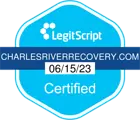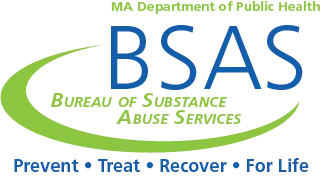Is Anxiety a Symptom of Drug Withdrawal?
Does drug withdrawal cause anxiety? Yes, anxiety can occur when withdrawing from any drug or other addictive substance or behavior. Anyone who is physically dependent on a drug is likely to experience withdrawal syndrome when decreasing or stopping usage.
Withdrawal can produce a wide range of unpleasant symptoms, one of which is anxiety. Some people may also experience the panic attacks and depression that may accompany generalized anxiety during withdrawal. Like all withdrawal symptoms, the anxiety that accompanies drug withdrawal can be intense and unpredictable. Keep reading to learn more about what you need to know if you have concerns about anxiety levels while going through withdrawal.
How to Know if You’re at Risk for Withdrawal
There is a risk of withdrawal whenever someone is addicted to a substance. Also known as dependence, addiction occurs when someone finds it difficult to stop doing something that makes them feel good. It is possible to have a physical addiction, a psychological addiction, or both. Withdrawal from a physical or psychological addiction can trigger anxiety.
Physical dependence on a drug will create withdrawal symptoms when a person stops taking the addictive substance. If someone either intentionally or inadvertently reduces the amount of the substance used, this can also trigger withdrawal symptoms. Psychological addiction occurs when a person believes they need the addictive substance in order to function. Being without the substance may induce feelings of anxiety.
Why Does Drug Withdrawal Cause Anxiety?
Withdrawal symptoms are caused by the body’s desire to maintain homeostasis. When a person habitually abuses a drug, the body gradually adapts until it begins to rely on the substance to function. When the substance is abruptly removed from the body, the person begins to experience withdrawal symptoms.
A real-life example would be someone who has a substance use disorder (SUD) involving opioids, other painkillers, or benzodiazepines used to treat anxiety and other mental health conditions. These drugs all act on a neurotransmitter called dopamine that creates euphoric feelings. With prolonged use of these drugs, the brain will stop producing its own dopamine because it is reliant on the drugs. When the person using the drug abruptly stops using it after a period of addiction, the decreased levels of dopamine can trigger anxiety and depression.
How Long Does Anxiety Last During Drug Withdrawal?
The length and severity of drug withdrawal can vary by person based on a number of factors. Generally, someone who has used a drug heavily for a long time will experience more intense withdrawal symptoms than someone who has consumed smaller amounts of a drug over a shorter period. The type of drug used can also impact withdrawal outcomes.
Generally, drug withdrawal lasts three to five days. However, someone who is severely addicted to benzodiazepines may experience prolonged withdrawal that lasts one to two weeks.
The timeline for opioid withdrawal depends on which drug you have been taking and whether it is a short-acting or long-acting variety. For short-acting opioids, acute withdrawal starts eight to 24 hours after the last use and may continue for four to 10 days. Users of long-acting opioids may experience acute withdrawal symptoms that start 12 to 48 hours after the last use and last 10 to 20 days.
If a person is at a point in their addiction where the body has stopped producing its own natural pain-killing endorphins, withdrawal symptoms could last anywhere from a few weeks to several months.
Does Everyone Experience Anxiety During Withdrawal?
No, it is not certain that a person will experience anxiety during withdrawal. Every person’s withdrawal experience is unique. Some people may experience just one or two of the symptoms associated with drug withdrawal. Others may go through nearly the full range of physical and psychological symptoms.
Anyone who is considering a self-detox approach to getting sober should not rely on stories or anecdotal reports they have heard from people who were able to “breeze through” withdrawal. It is also important not to feel disheartened or fearful about withdrawal if you have heard about negative experiences. The truth is that most people will experience some level of withdrawal symptoms when they stop taking drugs.
What Other Withdrawal Symptoms Commonly Accompany Anxiety?
While there are some overlaps, drug withdrawal symptoms can vary based on the substance involved. Here is a look at the common withdrawal symptoms experienced by people who use opioids and opiates.
- Goosebumps
- Restlessness
- Insomnia
- Yawning
- Runny nose
- Watery eyes
- Dilated pupils
- Body aches
- Sweating
- Vomiting
- Intestinal cramping
- Diarrhea
- Fever
- Shaking
- Fast heartbeat
- Rapid breathing
- High blood pressure
- Hallucinations
- Seizures
Withdrawal symptoms caused by barbiturates and benzodiazepines can resemble alcohol withdrawal syndrome. These symptoms can include:
- Shaky hands
- Headache
- Nausea
- Vomiting
- Insomnia
- Racing heart
- Sweating
- In severe cases, seizures or rhabdomyolysis (breakdown of muscle tissue)
Withdrawal from cocaine and amphetamines produces symptoms that are similar to those of opioid withdrawal. People withdrawing from cocaine and amphetamines often experience:
- Depression
- Excessive sleep
- Hunger
- Dysphoria
- Severe psychomotor impediments
Undiagnosed Anxiety Symptoms May Reappear During Withdrawal
For people who were living with anxiety prior to developing an SUD, the withdrawal period could be especially difficult because symptoms suppressed by drug use may return. According to the self-medication theory of addiction, people begin misusing substances as a way of coping with specific types of emotional pain, dysfunctional social relationships, or other psychosocial issues. This means that during withdrawal, a person who was self-medicating with a substance may experience the intense symptoms of anxiety that drove them to self-medicate.
Common symptoms of an underlying anxiety disorder include:
- Nervousness or restlessness
- Feeling tense and unable to relax
- Having an ongoing sense of impending danger, panic, or doom
- Having an increased heart rate
- Experiencing rapid breathing (hyperventilation)
- Sweating
- Trembling
- Feeling weak or tired
- Having trouble concentrating or thinking about anything other than the worry of the moment
- Having trouble falling or staying asleep
- Experiencing gastrointestinal (GI) problems that do not have a medical explanation
- Having difficulty controlling worry
- Having the urge to avoid things that trigger anxiety
For many people who are self-medicating for anxiety, a lack of available resources has prevented them from seeking treatment. Some people may be so accustomed to living with anxiety that they do not even know the experiences they are having aren’t typical. Care providers have a variety of treatment avenues to share with people living with general anxiety disorder, panic attacks, post-traumatic stress disorder (PTSD), and other mental conditions associated with anxiety.
These days, the two main treatments for anxiety are psychotherapy and medications. Commonly known as talk therapy or counseling, psychotherapy involves working with a therapist to find ways to reduce anxiety symptoms and behaviors surrounding anxiety. Many experts believe the most effective form of psychotherapy is cognitive behavioral therapy (CBT). It offers a short-term treatment plan focused on integrating skills for improving symptoms into a person’s life. In addition, a treatment plan may include some holistic practices that complement traditional approaches.
Common treatments designed to help people manage anxiety include:
- Mindfulness
- Relaxation techniques
- Controlled breathing techniques
- Dietary adjustments
- Exercise
- Building self-esteem
- Structured problem solving
- Support groups
For a person with an anxiety disorder, getting treatment to address the issue alongside treatment for their substance use disorder is crucial. In fact, the importance of addressing the potential role of anxiety in SUDs highlights the importance of seeking help for detoxification from drugs. In order to reduce risks for serious side effects when ceasing drug use, a medically supervised detox process is often recommended. In addition to creating a safer setting than attempting to go through withdrawal at home alone, a medically supervised detox provides the support and supervision necessary to create a comfortable experience for those with underlying anxiety.
Caring for People Experiencing Anxiety During Withdrawal
Not being able to anticipate what the withdrawal experience will be like can feel overwhelming for people who desire to get sober from drugs. Fear of withdrawal symptoms is something that can keep people from making the lifelong changes they want to make. The benefit of undergoing a medically supervised detox is that a client is under the care of a team capable of anticipating the trajectory of withdrawal based on the specific drug or combination of drugs used. Our drug detox center programs are designed to assist clients through the withdrawal process without the sense of uncertainty that can make a self-guided withdrawal both scary and dangerous.
At Charles River Recovery, our highly trained staff monitors symptoms to help clients manage discomfort as different symptoms manifest during the steps of drug detoxification. Using a carefully designed custom plan for each client, they are ready to step in with management techniques to alleviate symptoms as much as possible while carefully monitoring the person’s physical and emotional well-being.
Are you ready to stop using drugs? Our team is here to help you detoxify safely in a controlled setting. We specialize in supportive detox management to help you get through the complete withdrawal process to reduce your chances of experiencing a relapse. Following the detoxification process, our team will help you move into the next phase of recovery with a variety of therapeutic practices and services.
If you are worried about anxiety as a withdrawal symptom, there is no need to attempt detoxification alone. Charles River Recovery offers assisted drug detox in a top-tier facility with a caring, attentive team of professionals. Contact us today to get lifesaving, life-changing help for your substance use disorder.






